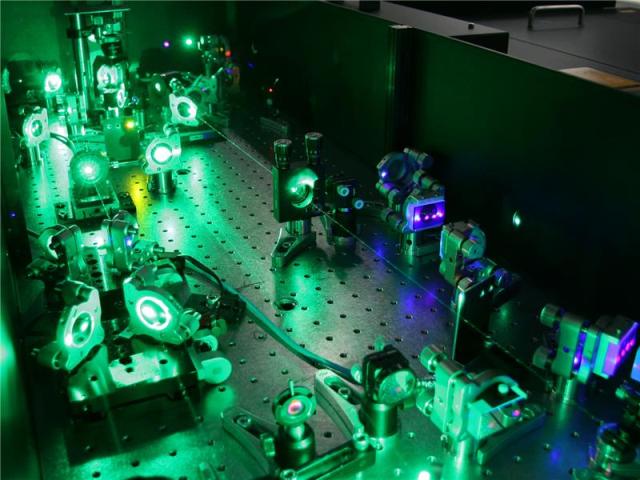Aug 7 2015
LASERLAB-EUROPE, the consortium of major European laser research organisations, enters a new phase of collaboration from 2015 until 2019. In a very competitive call the consortium has been successful in securing EC funding of 10 million euros in Horizon 2020.
 High repetition rate Optical Parametric Chirped Pulse Amplifier (OPCPA) System at MBI. Photo: MBI
High repetition rate Optical Parametric Chirped Pulse Amplifier (OPCPA) System at MBI. Photo: MBI
Lasers are important tools in modern technologies, medical science and research. Recently the field of advanced lasers has experienced remarkable breakthroughs in laser technologies and novel applications. Laser technology is a key innovation driver for highly varied applications and products in many areas of modern society, thereby substantially contributing to economic growth.
For example, an ageing population brings with it an increased demand on healthcare systems. Screening and medical imaging methods based on photonics will strengthen preventive medicine and the early detection of diseases. In this context, LASERLAB-EUROPE will realise new techniques and tools for advanced microscopy and biomedical devices, develop novel medical therapies and biosensors as well as use the emerging relevant applications of laser-driven particle beams in radiotherapy.
“The participating laboratories cover advanced laser science and applications in most domains of research and technology, with particular emphasis on areas with high industrial and social impact, such as bio- and nanophotonics, materials analysis, biology and medicine. Through our strategic approach, LASERLAB-EUROPE will strengthen Europe’s leading position and competitiveness in these key areas”, says Prof. Claes-Göran Wahlström of the Lund Laser Centre in Sweden, who coordinates the LASERLAB-EUROPE consortium.
In the upcoming 4-year phase, starting in December 2015, LASERLAB-EUROPE will comprise 33 of the leading European laser infrastructures and, together with subcontractors and associate partners, involve coordinated activities in 21 countries. The members offer free access to key complementary laser facilities in Europe with performances at the international forefront of laser technology, including two Free Electron Lasers (FELs). This allows guest scientists from academia as well as from industry to carry out leading-edge research for the advancement of knowledge in a wide range of scientific domains, thus serving a very broad and interdisciplinary community.
Within LASERLAB-EUROPE, the Max Born Institute collaborates in several joint research activities, provides access to its application laboratories for guest scientists, and is responsible for the administrative project management.